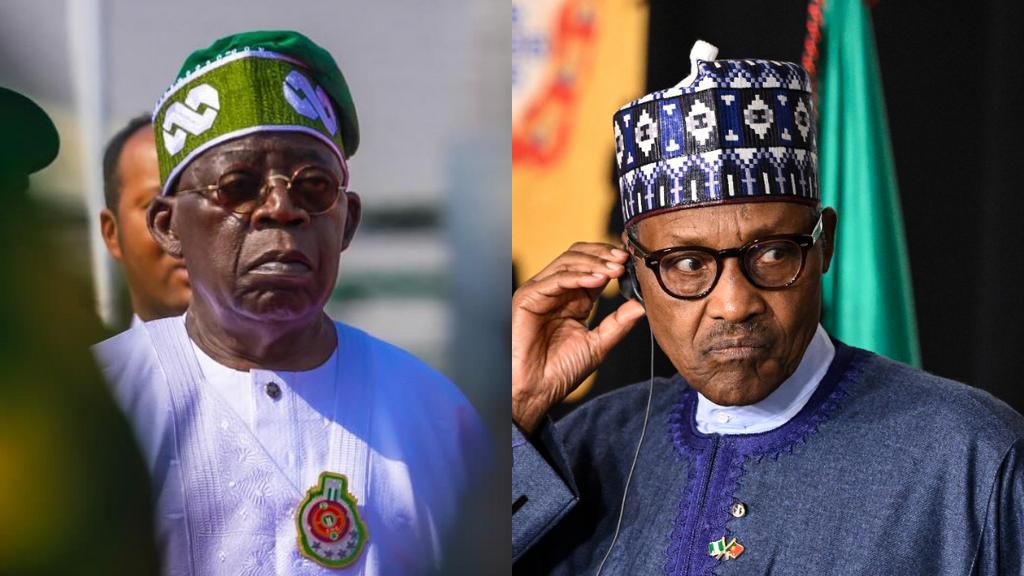'I pity Tinubu' — Katsina Governor Radda recalls private chat with Buhari

'I Pity Tinubu': Governor Radda Reveals Buhari's Private Thoughts on Subsidy Removal Katsina State Governor Dikko Radda has disclosed that the late former President Muhammadu Buhari privately expressed his sympathy for President Bola Tinubu regarding the removal of fuel subsidy, acknowledging the decision as a courageous act. Radda shared this information with journalists on Tuesday, July 15th, during the final burial rites for Buhari in Daura, Katsina State.
Buhari, who passed away on Sunday at the age of 82 in a London clinic, was laid to rest with full military honors. The revelation from Governor Radda offers a unique insight into Buhari's perspective on a policy decision that has significantly impacted Nigeria's economy and its citizens.
Buhari's Perspective on Tinubu's "Bravery" Visibly moved, Governor Radda recounted his conversation with Buhari, during which the former president commended Tinubu's boldness in addressing the long-standing fuel subsidy issue. According to Radda, Buhari stated, "Let me use his words: ‘I pity Bola (President Tinubu) for what he is doing. He is a brave man for removing the fuel subsidy.’"
Radda further explained that Buhari had previously attempted to eliminate the subsidy during his own tenure but faced considerable opposition. "When I was president, whenever I made an attempt to remove the subsidy, a lot of people would give me too many reasons not to do so," Buhari reportedly said. He then added, "But Bola did it immediately. If he had consulted people, he could not have removed the fuel subsidy now."
The Legacy of Fuel Subsidies in Nigeria The removal of fuel subsidies has been a contentious issue in Nigeria for decades. Successive governments have grappled with the economic burden of subsidizing fuel, which has often led to corruption and inefficiencies. The subsidy regime, while intended to provide affordable fuel for citizens, has been criticized for disproportionately benefiting wealthy individuals and smuggling syndicates.
Dr. Ayo Teriba, an economist and CEO of Economic Associates, notes that "The fuel subsidy regime was unsustainable. While the immediate impact of its removal is being felt by Nigerians, the long-term benefits of freeing up resources for critical infrastructure and social programs are undeniable." He further adds, "Buhari's reported acknowledgement of Tinubu's bravery highlights the political will required to make such a difficult decision."
Leadership Vacuum and National Loss Governor Radda also emphasized the significant loss the nation has suffered with Buhari's passing, stating that his absence has created a leadership vacuum. "The former President’s passing has left a huge void that will be difficult to fill," Radda said, echoing the sentiments of many political figures who attended the burial.
Political analyst, Aisha Mohammed, commented on the situation, stating, "Buhari's death marks the end of an era in Nigerian politics. His influence, particularly in the northern region, was substantial. The question now is how his political allies will navigate the current landscape and contribute to national development."
The Road Ahead As Nigeria navigates the post-Buhari era, Tinubu's administration faces the challenge of managing the economic fallout from the subsidy removal and implementing policies to mitigate its impact on vulnerable populations. The late president's posthumous remarks offer a glimpse into the complexities of leadership and the difficult choices that leaders must make in the face of national challenges.
The removal of fuel subsidy remains a key policy of the Tinubu administration. Nigeria faces economic adjustments in the wake of Buhari’s passing. Political stability is vital as the nation moves forward.
The nation continues to mourn the loss of a former leader while grappling with the realities of a changing economic landscape.
Originally sourced from: pulse Ng
